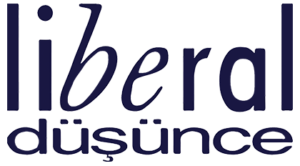Yazarlar: *Prof. Dr. | Sivas Cumhuriyet Üni., İktisadi ve İdari Bilimler Fakültesi İktisat Bölümü, İktisat Tarihi ABD
**Prof. Dr. | Sivas Cumhuriyet Üni., İktisadi ve İdari Bilimler Fakültesi İktisat Bölümü, İktisadi Gelişme ve Uluslararası İktisat ABD
Liberal Düşünce Dergisi, Yıl: 29, Sayı:113, Kış 2024, ss. 29-54.
Öz
Bu çalışma son yıllarda dünyada yükselme eğilimine giren iktisadi devletçiliğin etkilerini araştırmaktadır. Devletçi uygulamalarla çok eski dönemlerden beri karşılaşılmaktadır, ancak son iki-üç yüzyıl boyunca, devletçiliğin kapsamı sürekli genişleme eğilimindedir. İkinci Dünya Savaşından sonra artan refah devleti uygulamaları devletçiliğin kapsamını büyütmüştür. 1980’lerden sonra yaşanan liberalizasyon sürecine rağmen, devletçilik güçlü kalmaya devam etmiştir. Son dönemlerde hem kamu harcamalarının GSYH’ye oranının artması itibariyle hem de kamu iktisadi teşekküllerinin güçlenmesi yönüyle devletçiliğin yükseldiği dikkat çekmektedir. Devlet işletmeleri, özel sektörün kârlı şekilde faaliyet gösterdikleri alanlarda giderek daha fazla yer almaya başlamıştır. Devletçiliğin yükseliş sürecinde ayrıca kapsamlı bir parasal genişleme olgusu da yaşanmaktadır. Regülasyonların, teşvik ve sübvansiyonların yaygınlığı da devletçi faaliyetlerin diğer göstergeleridir. Çalışmada devletçi uygulamaların özel kesim üzerindeki yükleri artırdığı, kamu iktisadî girişimlerinin yaygınlaşması ile verimliliğin azaldığı, üretim maliyetlerinin yükseldiği, rüşvet ve yolsuzluğun yaygınlaştığı, şeffaflık ve hesap verebilirliğin azaldığı vurgulanmaktadır.
Anahtar Kelimeler: Devletçilik, Kamu İktisadi Teşekkülleri, Kamu Harcamaları, Regülasyon.
The Rise of Economic Statism and Its Effects
Abstract
This study investigates the effects of economic statism, which has been on the rise in the world in recent years. Statist practices have been encountered since ancient times, but the scope of statism has tended to expand constantly over the last two-three centuries. Increasing welfare-state practices after the Second World War expanded the scope of statism. Despite the liberalization process after the 1980s, statism remained strong. It is noteworthy that statism has increased recently, both due to the increase in the ratio of public expenditures to GDP and the strengthening of state owned enterprises. State owned enterprises have become increasingly involved in areas where the private sector operates profitably. During the rise of statism, there is also a comprehensive monetary expansion. The prevalence of regulations, incentives and subsidies are other indicators of statist activities. The study emphasizes that statist practices increase the burden on the private sector, and expansion of state-owned enterprises reduces productivity, transparency and
accountability, and increases production costs, bribery and corruption.
Keywords: Statism, State-Owned Enterprises, Public Expenditures, Regulation.



